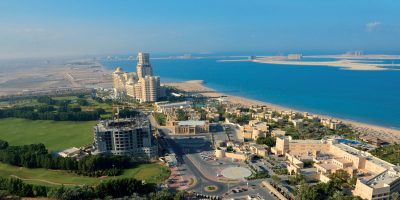
UAE As Your Study Destination
The United Arab Emirates (UAE) is known for its sophisticated infrastructure, high-quality education, and cosmopolitan environment. Because of its strategic location and vibrant atmosphere, it has become one of the most sought-after study destinations in the world for international students. Here are ten main reasons to choose UAE as an international study destination.
UAE At A Glance
The UAE has seven emirates: Abu Dhabi, Ajman, Dubai, Fujairah, Ras Al Khaimah, Sharjah and Umm Al Quwain.
Capital: Abu Dhabi
Business hub: Dubai
Popular student destinations include Abu Dhabi, Dubai and Sharjah
The UAE is a popular study destination, with top-class universities and modern facilities. The official language is Arabic but the main language of higher education is English.
The UAE is a popular study destination, with top-class universities and modern facilities. The official language is Arabic but the main language of higher education is English.
The UAE has low levels of violent and property crime and is generally considered a safe place to live.

UAE Education System
The UAE’s higher education system opted for the modern world education system of France, Canada, Germany, the UK and the USA. The number of institutions is ever-increasing but there are currently three state-funded universities and more than 50 private, local institutions. The UAE is home to some of the best universities in the Gulf region.
This trio of public universities includes:
Higher Colleges of Technology (HCT) – the UAE’s largest university.
UAE University (UAEU) – is the country’s flagship university offering many internationally accredited programmes.
Zayed University (ZU) – was established in 1998 as a female-only institution but is now open to males.
Accreditation and authorized bodies
Educational institutions are governed by the Ministry of Higher Education & Scientific Research.
Ministry of Education (MOE) handles all stages of education in the UAE including schools, colleges, universities and post-graduation programmes.
The Emirates Schools Establishment (ESE) – Public Schools
The Emirates Schools Establishment is an independent federal entity, It aims to enhance the efficiency of the public schools in the UAE by offering a positive, learning environment enriched with innovation, knowledge and skills.
ESE undertakes several responsibilities related to the teaching staff in all public schools across the country, the students’ wellbeing, the management of exams and results, and all operations-related matters such as school uniforms books, transportation etc.

Emirates individual Educational Accreditation Authorities
Abu Dhabi
Department of Education and Knowledge was (DEK) established by the H. H. Sheikh Khalifa bin Zayed Al Nahyan (late), former President of the UAE aiming to develop education and educational institutions in the emirates
The department is responsible for supervising, regulating and spearheading the development initiatives within the education sector in the Abu Dhabi emirate, including public and private schools.
Dubai
The knowledge (KHDA) has the authority to inspect schools in the emirate and is responsible for the growth and quality of private education in Dubai. It supports schools, parents, students, educators, investors and government partners to create a high-quality education sector focused on happiness and wellbeing.
Sharjah
In November 2018, the Government of Sharjah issued the Emiri Decree to establish Sharjah Private Education Authority. The new education authority is affiliated with Sharjah Government and enjoys a legal personality and full capacity to achieve its objectives.
Other Emirates
Schools in Umm Al Quwain, Ras Al Khaimah, Ajman and Fujairah operate under MOE through local branches or educational zones.
Why To Consider UAE University
The most prestigious private universities include:
- Abu Dhabi University (ADU)
- Al Ain University
- Khalifa University of Science, Technology and Research (KU)
- University of Sharjah (UOS).
- University of Arab Emirates
- Ajman University
- American University in Dubai (AUD)
- American University of Sharjah (AUS)
There are ten UAE institutions in the QS World University Rankings 2022, these include:
- Abu Dhabi University
- Khalifa University
- United Arab Emirates University
- University of Sharjah
- Ajman University
- Al Ain University
- American University Dubai
- American University of Sharjah
- Canadian University Dubai
Degree courses in the UAE:
Bachelors’ programmes:
Bachelor’s programs at UAE institutions are available in a range of subjects. Full-time courses take three to four years to complete.
Universities set their admission requirements, but to be accepted international students usually need a high school leaver’s certificate or equivalent and EmSAT specific test score for each subject.
The universities teach in English, and students who don’t have English as a native language will also need to prove proficiency through an IELTS or TOEFL test. Even though many universities teach in English.
Masters’ Degrees:
Most master’ programmes in the UAE are structured in a similar way to those in other parts of the world, with MAs and MScs available. You must have a Bachelor’s degree to be accepted onto a course. Programmes are taught on a full-time basis and last for one or two years.
PhDs:
PhDs in the UAE follow a similar structure to those in the UK. Students are required to conduct independent research and submit a Doctoral programme typically lasts three to four years, depending on their field of study. You must have a Master’s degree to apply for these research-based programmes.
Student exchanges:
The UAE is one of the planet’s most cutting-edge locations, several UK, US, Canadian and Australian universities have developed campuses in the country.
You may be eligible for postgraduate exchange programmes with your university, so check with your tutor or institution’s international office. The UAE institution you’re interested in attending may also be able to help.


Course fees:
Universities in the UAE set their fees so costs vary depending on your course, level of study and location.
Tuition fees for postgraduate courses are often expensive but the cost of programmes varies significantly. Fees can cost anything between AED 48,000 (£9,668) to AED 120,450 (£24,262) for one year.
All courses are assessed in semester credit hours. There are also additional costs to consider such as application fees, accommodation, study materials, food and travel.
Funding to study and scholarships in the UAE:
Tuition fees might be on the pricey side but there are a select number of funding options.
The government scholarships on offer are often reserved for UAE nationals however, some institutions in the country offer postgraduate study scholarships to foreign students.


Postgraduate students will also need proof of a recognized undergraduate degree.
Upon arrival in the country, you’ll need to undergo a medical examination, which will test for HIV, hepatitis B and C, tuberculosis, leprosy and syphilis.
For researchers, doctors and engineers with outstanding profile; Outstanding students may be granted a five-year visa.
To be granted this visa:
1. Secondary school students must graduate with a grade of at least 95%
2. University students must graduate with a distinctive GPA of at least 3.75.
Student visas:
To gain a student residence visa you will need to be sponsored by a resident of the country. If you don’t have any relatives in the UAE your university will likely do this for you.
You’ll need to provide:
1. Passport with at least six months validity and two blank pages.
2. 12 passports sized photographs
3. Three passport copies and an entry visa to the UAE upon arrival
4. Evidence of acceptance to a UAE higher education institution
5. Bank statements outlining evidence of funds
6. Tenancy agreement (or a letter from your university if staying in halls)
7. Copy of tuition fee receipt for the current study year of the programme
8. Copy of visa fees receipt for the current study year of the programme

Cosmopolitan Society
The UAE is a diverse mix of cultures and nationalities, providing students with a unique opportunity to explore, discover, and gain insights into different world cultures. People speak several languages, such as Arabic, Urdu, Farsi, and English.

Employment Opportunities
Due to immense developmental work in diverse sectors, the UAE economy has been rapidly growing in recent years, making it an attractive international hub for work.
The growth in the economy has created a plethora of employment opportunities for graduates across various industries.
Also, there are no taxes levied on salaried professionals, which makes an attractive proposition for working in the UAE.

Personal Safety & Security
The UAE has very low levels of violence and crime. That is why UAE is well known as one of the safest countries to live in.
According to Global Finance, the UAE has been ranked the second safest country among 134 countries.

Outdoor Activities & New Experiences
The UAE constitutes seven emirates, each having its own unique identity, culture, and attractions to explore and discover.
The UAE is also known for its tourist attraction spots and activities such as adventure sports and outdoor activities, such as parachuting, mountaineering, quad biking,

High Standard of Living
Decent accommodation and all other modern facilities are available easily for international students. In general, the standard of living is high in the country, and living on campus is well arranged.








